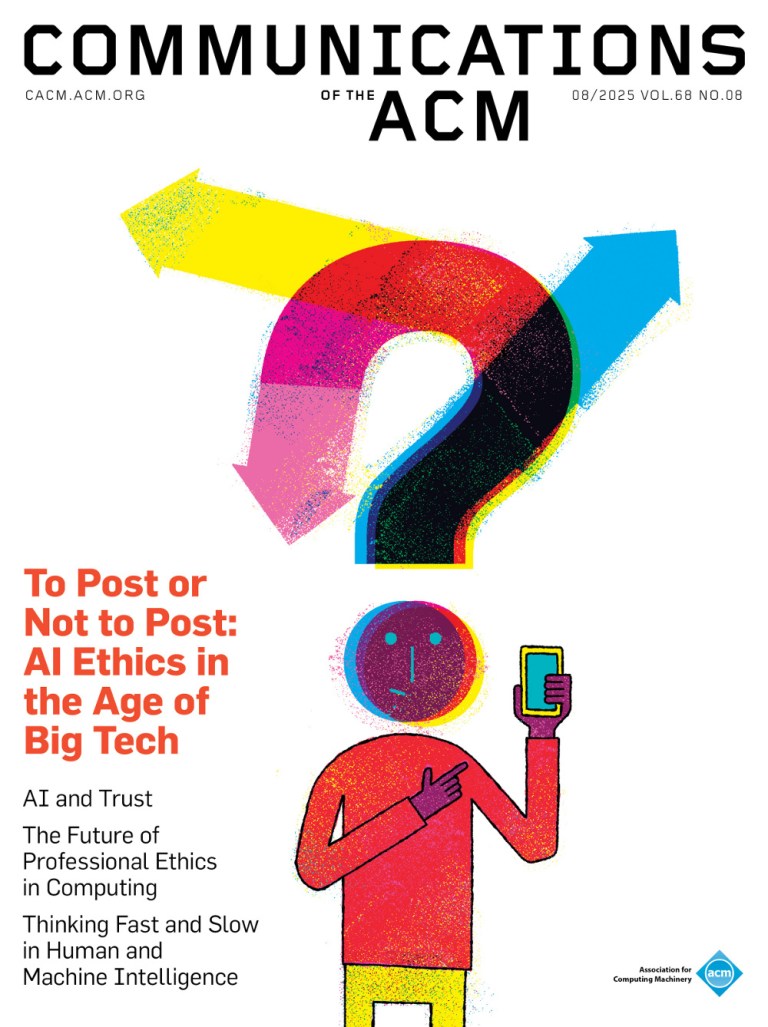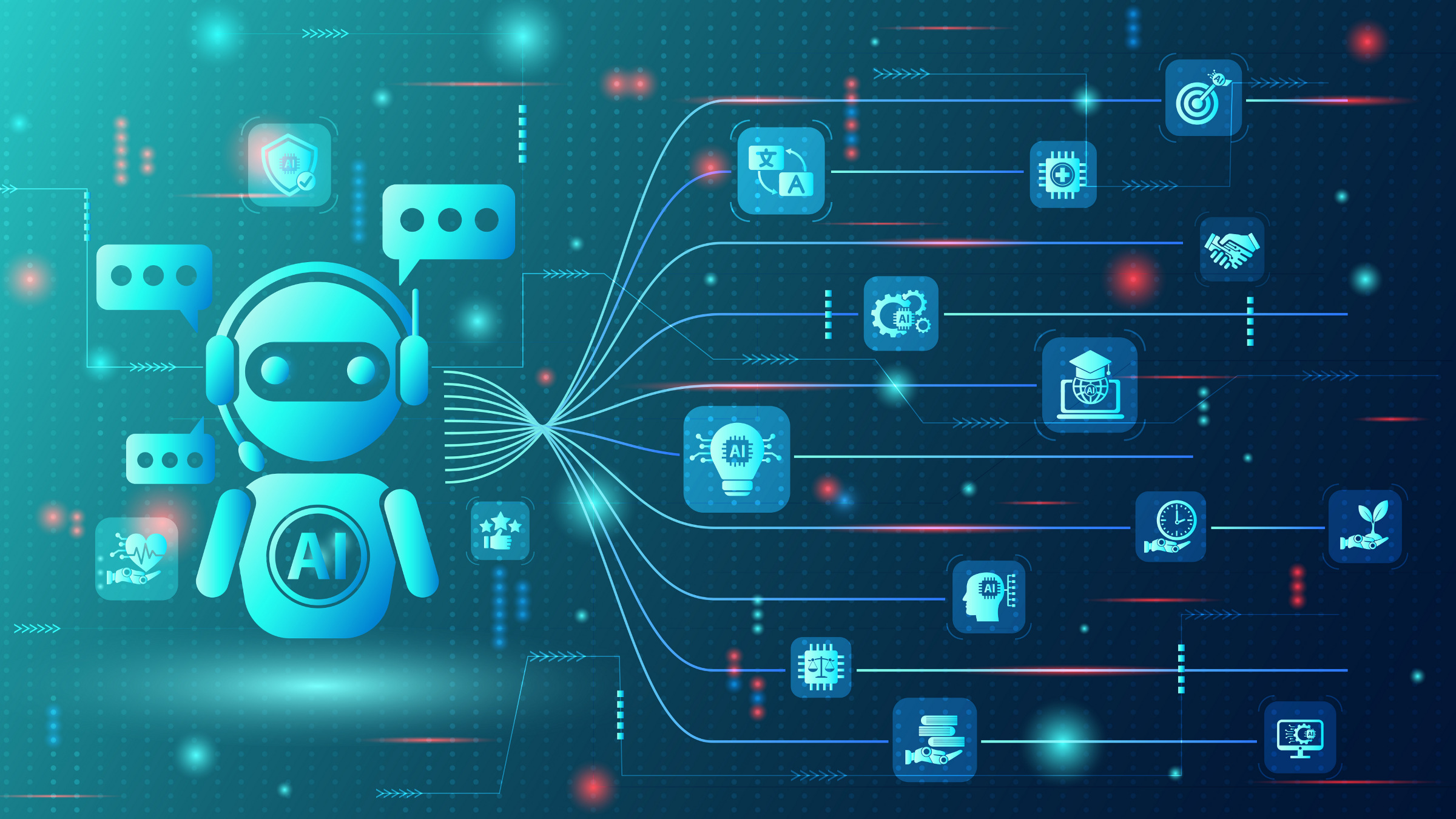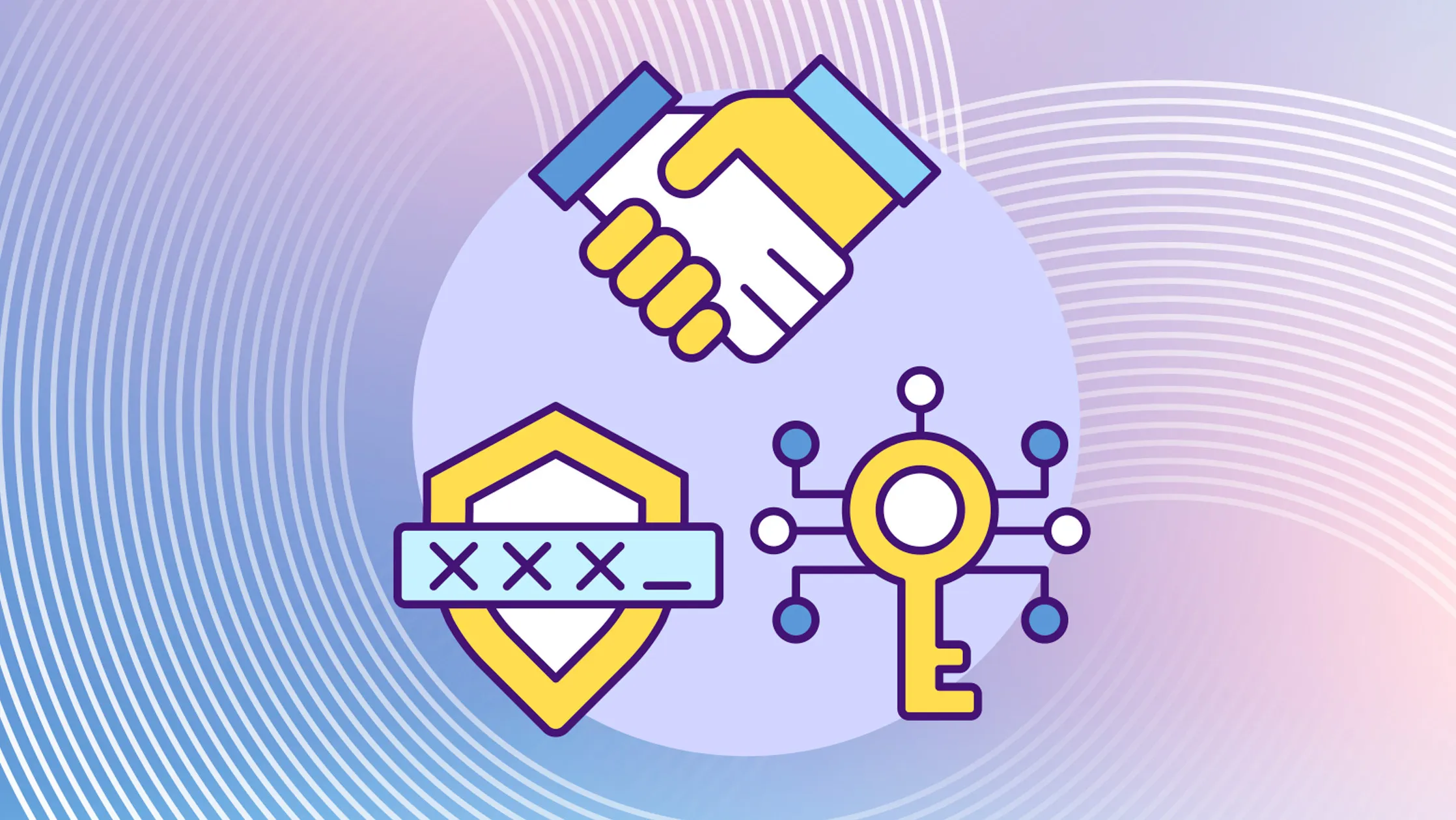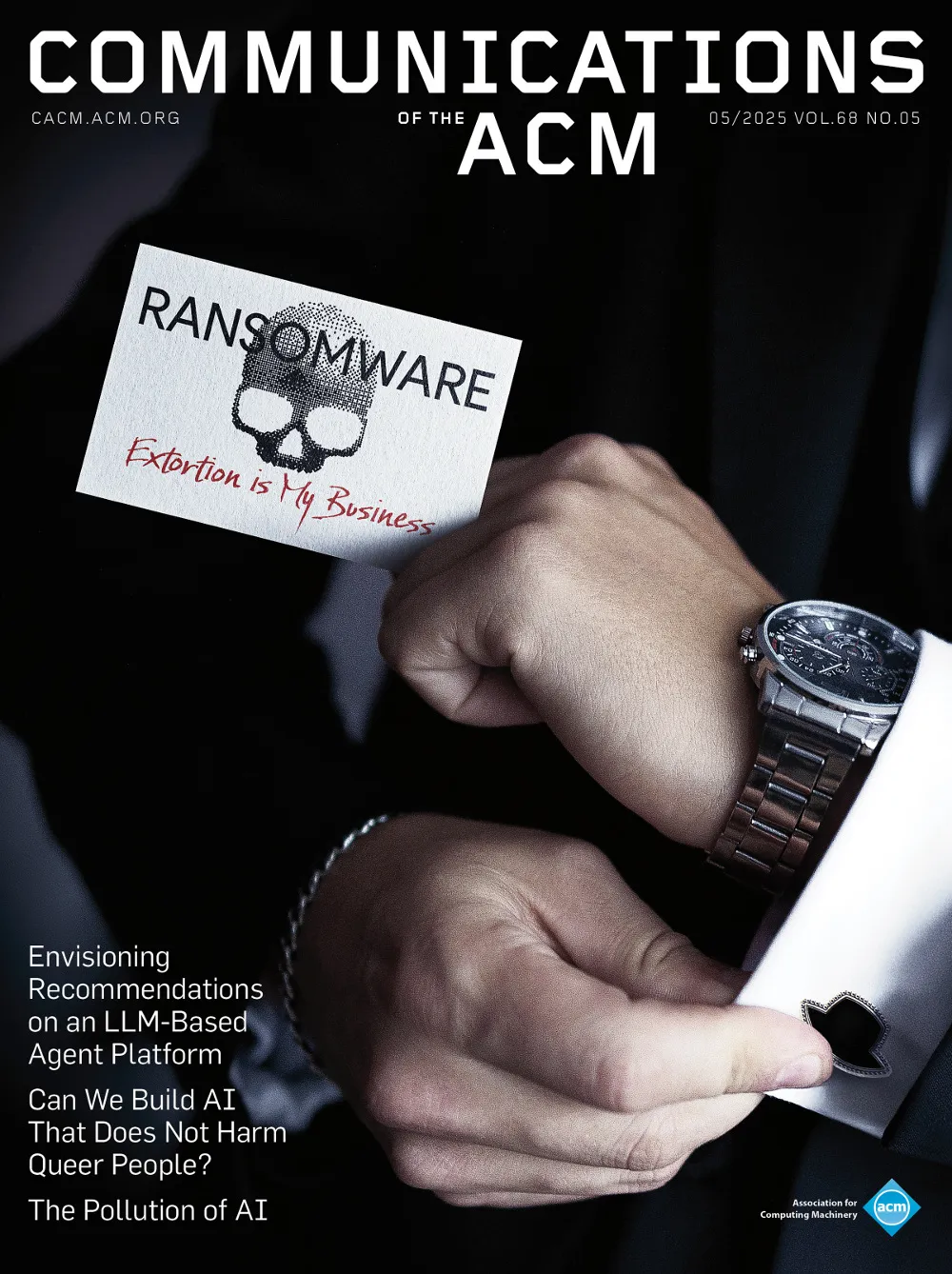New ideas are emerging to make communication among interacting agents more reliable and precise.
August 2025 - Vol. 68 No. 8

Features
The Transformative Power of Inspiration
"It became a mission for me to advocate for including people in the design process as early and often as possible."
Empowering Virtual Agents With Intelligent Systems
Environmental Embodied AI employs virtual agents in non-robotic applications to influence and affect physical or operational states within environments.
The Power and Potential of Zero-Knowledge Proofs
ZKPs are a means of proving a statement while retaining privacy and ensuring information security.
Clock Bait: Why The Moon Needs Its Own Time Zone
Clocks tick faster on the Moon, which over time could lead to timing errors that are too large to accept for safe lunar navigation or autonomous navigation.
Scientists may have turned the corner on the quantum error correction challenge.
Balancing Secrecy and Transparency in Bug Bounty Programs
Embracing transparency while balancing temporary secrecy can lead to a more resilient and accountable software ecosystem.
There is a tendency in software to keep piling on features and functions, which is anathema to simplicity and repeatability.
The Future of Professional Ethics in Computing
Computing professionals should use their privileges and insights to help societies navigate questions about digital technologies that traditional ethical theories find difficult to answer.
Integrity will be the primary security challenge for AI systems of the next decade.
Two Types of Data Privacy Controls
Precise, sensible, and easy to use terms to differentiate the two intrinsic types of privacy controls will positively impact the accuracy of privacy research and discussions.
To Post or Not to Post: AI Ethics in the Age of Big Tech
AI ethicists should recognize their potential complicity in the systems they study.
It Takes a Village: Bridging the Gaps between Current and Formal Specifications for Protocols
Proposals for narrowing the gap between the formal methods and networking communities.
Understanding Mobile App Reviews to Guide Misuse Audits
The MissAuditor approach identifies exploitable apps and uncovers their exploitable functionalities.
Thinking Fast and Slow in Human and Machine Intelligence
The SOFAI multi-agent architecture integrates both fast, intuitive decision making and slow, deliberate reasoning.
Technical Perspective: Defending Data from SRAM-Based Attacks
SRAM-based attacks include recovering portions of memory from internal caches, internal RAM, and some CPU registers; attaching voltage probes that can keep SRAM powered on SoCs.
SRAM Has No Chill: Exploiting Power Domain Separation to Steal On-Chip Secrets
Showing the effectiveness of a voltage-based attack that snapshots SRAM, without exposing an SoC to low temperature.
An AI system targeting company management may be subtly manipulating communication channels like email and chat.





















